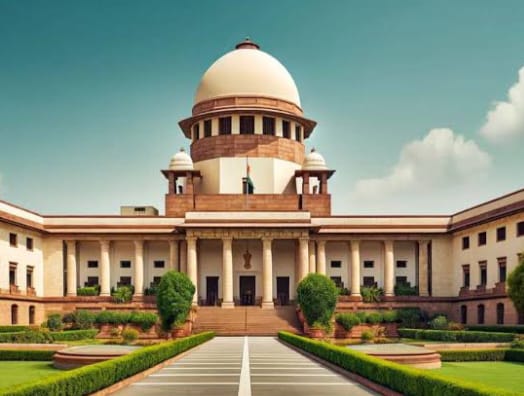New Delhi: In a ground-breaking move, the Supreme Court Collegium conducted its first-ever candidates interviews outside Delhi. The interaction, held in Visakhapatnam, assessed candidates recommended by the Andhra Pradesh and Telangana High Courts for constitutional judgeships. This initiative aimed to evaluate the candidates’ qualifications, suitability, and personalities while addressing concerns about nepotism and improving transparency in judicial appointments, reports the Navbharat Times.
The Collegium, led by Chief Justice of India (CJI) Sanjiv Khanna, along with Justices B.R. Gavai and Surya Kant, interacted with three candidates from Andhra Pradesh and five from Telangana. This marked the first time in nearly three decades that the Collegium stepped out of Delhi for the judicial selection process.
The Collegium system, introduced in the 1990s to safeguard judicial independence from executive influence, traditionally conducted its evaluations in Delhi. This new approach, involving direct interviews at local venues, ensures a more comprehensive assessment of candidates’ capabilities and personalities.
The decision to conduct interviews in Visakhapatnam not only saved candidates time and financial resources but also demonstrated the judiciary’s commitment to inclusivity. The interviews took place in the same hotel where Supreme Court judges stayed, creating a conducive environment for evaluating the candidates’ suitability.
Direct interactions, first introduced in December for candidates from the Allahabad, Bombay, and Rajasthan High Courts, allow the Collegium to gain deeper insights into candidates’ demeanour and fitness for judicial roles.
The Collegium is actively working to address allegations of nepotism, which have long plagued the judiciary. Concerns have been raised about first-generation lawyers facing disadvantages compared to candidates with familial ties to serving or former judges.
To combat this, the Collegium is considering two proposals. The first, a stricter measure, suggests banning the appointment of judges’ relatives to High Courts. While some welcomed this move, others argued that it would be unfair to disqualify capable candidates solely due to their family background.
The second proposal seeks to impose stricter evaluation criteria for candidates with judicial family connections, ensuring merit and impartiality in the selection process.
This initiative is a significant step towards bringing greater transparency and fairness to judicial appointments. By directly engaging with candidates and addressing nepotistic practices, the Collegium is working to ensure that only the most qualified and impartial individuals ascend to judicial positions.
Efforts to curtail the influence of dynastic culture are commendable and are likely to enhance public confidence in the judiciary. By prioritising merit and fairness, the Collegium has underscored its commitment to upholding the integrity of India’s judicial system.




